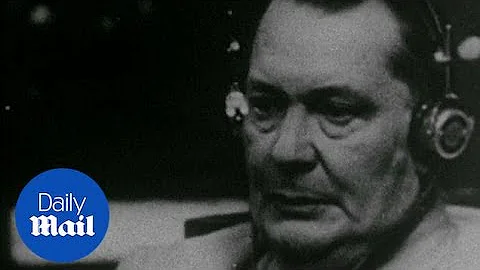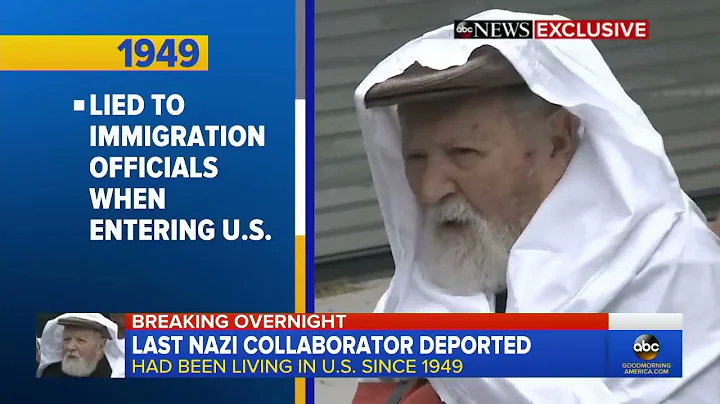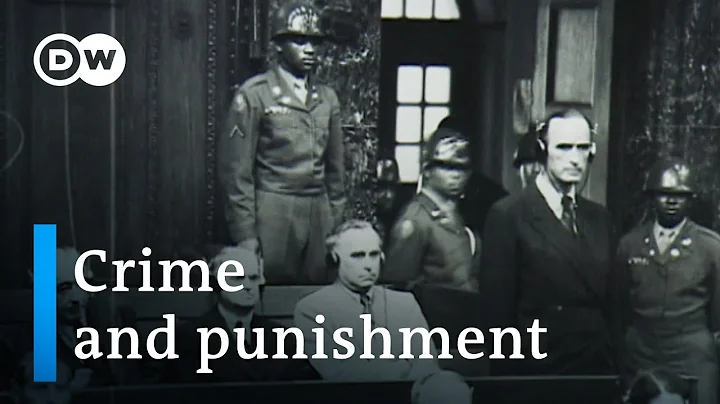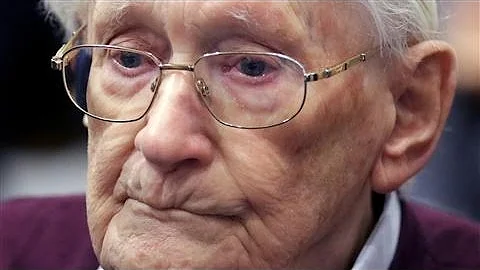After the war, the Allied Powers tried the German war criminals in Nuremberg, Germany from November 20, 1945 to October 1, 1946. The films " Peace After Disaster " and "Great Talent and Strategy" had a prosperous lineup and excellent "dialogue" , few people who care about World War II have not seen it; however, I believe that not many people know that Nuremberg Trial gave birth to the profession of "simultaneous interpretation". The author only learned about this by-product after reading Ms. Gaiba's monograph "The Origins of Simultaneous Interpretation" (F. Gaiba: The Origins of Simultaneous Interpretation; hereafter referred to as "The Origin"). This book was published in 1998 ( University of Ottawa ), but in 1997 the author had already won the American A.Schiavi Foundation Award for his success in researching this issue.

"The Origin of Simultaneous Interpretation"
Translators were called "tongue people" in ancient my country. According to Wikipedia, "Guoyu·Zhou Yuzhong" is quoted from Wikipedia: "Sit outside the door and make the tongue body surrender to it." "Tongue people can do it." The ambition of reaching a different place is also the official title of Xiangxu. "The translator is called Xiangxu, also known as the tongue person." It is not difficult to understand that the interpreter calls him "tongue person" in "Biaoyilu·Geography". , why is the official title "Xiang Xu"? According to "Ciyuan·Xiangxu": "An ancient general translator; an envoy to the barbarian, Fujian, Raccoon, Rong, and Di countries. He was responsible for transmitting the king's words and edicts." "Xiang" is a person who is familiar with the languages of ethnic minorities (the dialects of Yi and Di), " "Xu (official)" is a low-ranking official.
According to the research of "The Origin", about two hundred years ago, official professional interpreters did not appear. At that time, at informal international gatherings, representatives from various countries spoke in their own languages, "chickens and ducks talked", Their communication relies entirely on secretaries, diplomats, military officers, or other "bilingual" officials (staff) to act as "tonguers" and whisper words into their ears sentence by sentence. As for formal meetings such as the "Congress of Vienna" from 1814 to 1815, according to the " international law " at that time, the official language was French, that is, all participants spoke French, and there was no need for "tonguers" to act as "intermediaries." ; The same was true for the "Universal Postal Union" (Universal Postal Union) Congress held in Bern, Switzerland in 1874. It turns out that the “various people” attending these meetings all spoke French. French had become a popular language in various European countries in the fifteenth century. Under the rule of the "Sun King" Louis XIV (1667-1714), France's national power was at its peak and its power was powerful throughout the world. French then replaced Latin and became the "language of diplomacy" ( The diplomatic language). For about 150 years, French was the official language in official diplomatic situations.
During the First World War from 1914 to 1918, many representatives of the participating countries, especially the two major powers Britain and the United States, were officials without formal diplomatic training and did not speak French. The relevant meetings were only attended by bilinguals who were fluent in English and French. Those who have the power to "understand people" translate sentence by sentence, which is time-consuming and troublesome, and may not necessarily convey the meaning, causing a lot of trouble. At the "Paris Peace Conference" held in 1919 to deal with the aftermath of the war, British representatives insisted on and the conference accepted English as the official language, allowing the conference to use both French and English, and at the same time opened up the French-English and English-French translation. First of all. At the 1919 "International Labor Organization" (ILO) and the following year's "League of Nations" (League) conferences, since not all participants had received professional training, most of them were representatives of labor groups who spoke French or English and For diplomats with non-professional backgrounds, and the issues discussed involve many non-political terms such as economics, the conference had to hire full-time "tonguers". However, in these meetings, the "tonguer" sits next to the "recipient" and uses "Whispered Consecutively" to interpret the speech sentence by sentence into a language that the "recipient" understands.
It is very obvious that since the "meeting" has become more and more participants from non-English and French countries, it is necessary to hire professional real-time interpreters. However, this kind of professional talent is hard to find. As late as 1941, Switzerland opened the world's first "School for Interpreters" in Geneva to formally train "real-time interpretation" talents; Switzerland has this innovation, Part of the reason, of course, was that the League of Nations was headquartered in Geneva.
After the war, the economic vitality of Britain, France and the Soviet Union was severely weakened. It is not surprising that international affairs are dominated by the United States. Although Nuremberg is in Germany, the "home" is the United States! In addition to taking care of everything, the "host" also has to contribute money. The cost of "real-time interpreters" hired by the court is almost entirely "underwritten" by the United States. This is an example. Since "simultaneous interpretation" was a new thing at the time, whether the "tonguer" could interpret accurately and impartially made the parties concerned quite uneasy. There was a passage printed on the title page of "The Origin" saying that the defendant Goring (H. Goring) ) expressed his worries many times in prison about whether he could find qualified interpreters; it is not difficult to imagine that interpreters were in short supply at that time. Of course, both the prosecution and the defense must pay higher salaries to hire qualified translators.
The arrangement for the Nuremberg court interpreters is that France and the Soviet Union are responsible for French and Russian translation, while the United States and the United Kingdom are responsible for translating various languages used in the court into German. "The Origin" has a special chapter introducing the salary, accommodation and daily consumption of translators, which is of great reference value. Ms. Geba used the monthly salary of a first class soldier in the U.S. Army at 85 U.S. dollars (exclusively used in the German-occupied territories) as the base, indicating that the annual salary of a translator ranges from 4,000 to 5,000 to more than 12,000 U.S. dollars, which is the same as the top salary of a U.S. government civil servant. high (they also enjoyed houses and the purchase of "luxuries" such as nylon stockings and shavers in US military stores). The salary of translators is not only many times higher than that of soldiers, but also much higher than the daily salary of thirty or forty yuan for translators in the market. France, the Soviet Union, and Britain could not afford this price, so they were all "contracted" by the newly emerging domineering United States! The Nuremberg Trial in which four languages (English, French, Russian and German) were used simultaneously proved that "real-time interpretation" was very successful, and subsequent international conferences adopted this method.
After the final verdict of the Nuremberg Trials, there were still many unfinished matters outside the court that needed to be negotiated and communicated between the "victorious and defeated countries". Therefore, many English, French and Russian translators who were proficient in German stayed to work locally, but the chief translator Du Leon Dostert (1904-1971) was hired to go to New York to establish an interpretation team for the United Nations. "Simultaneous interpretation" has gone from one-on-one "whispering" to one interpreter who can serve an unlimited "audience", thanks to IBM is committed to the development of various related audio equipment (IBM manufactures such equipment, which is well known, but Academic circles have different opinions on whether it is the original author (see page 30 of "Origin"), and the important figure who implemented it into reality is Dusdot, who was originally from France. In addition to his native language, he is also proficient in German and English. Dusdot immigrated to the United States at an early age. After receiving a doctorate from Georgetown University in Washington State, he stayed at the school to teach French. In 1941, he was naturalized in the United States and was invited by the State Department to serve as a military translator in Europe during the war. In 1945, he was awarded the Ph.D. He holds the title of colonel and is responsible for the "interpretation" of the Nuremberg Trials...

Dusdot
Since the 1950s, "simultaneous interpretation" has been everywhere, and all international and regional conferences have used this method. "Interesting "What's strange is that the "interpretation" of and in Hong Kong courts in various countries around the world still uses the traditional method of "oral transmission"!





















